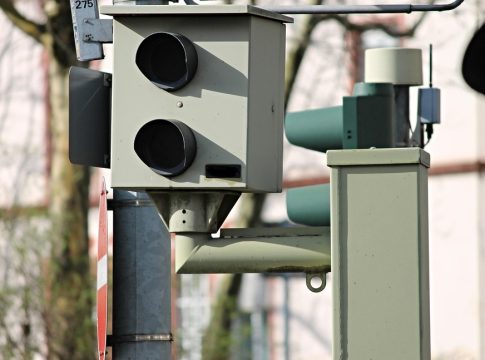Navigating the criminal justice system can be overwhelming, especially when it comes to parole. While many people are aware of the immediate repercussions of violating parole – like the possibility of returning to prison – there are numerous other consequences that often fly under the radar. Understanding these lesser-known consequences is crucial for anyone on parole or considering it for a loved one. Not only can these repercussions impact your freedom, but they can also affect relationships, employment prospects, and mental health. Let’s dive into seven of these lesser-known consequences that you definitely need to know.
1. Increased Supervision
One common outcome of a parole violation is ramped-up supervision. If you’re caught violating your parole, it’s likely that your parole officer will increase the frequency of check-ins or visits. This additional scrutiny can escalate stress levels and make it harder for you to reintegrate into society, as your every move is monitored more closely. It’s essential to understand that this heightened supervision can affect your daily life and result in further violations if you struggle with the increased pressure.
2. Limitations on Travel
Did you know that a parole violation can severely limit your ability to travel? Many parole agreements stipulate specific geographic boundaries that you cannot cross without prior approval. If you violate these terms—even innocently—you’ll find yourself facing consequences that could merely involve a warning or escalations to further legal action. It’s crucial to communicate openly with your parole officer if you have any plans to travel, ensuring you remain compliant with your conditions to avoid complications.
3. Social Stigma
Beyond the legal ramifications, parole violations can lead to social stigma. Friends, family, and even strangers may view those who have violated their parole differently, which can strain relationships or even lead to social isolation. Understanding this social component is essential; it can have profound effects on mental health. Finding support groups or therapy can help you deal with the emotional fallout while working on maintaining a positive self-image, regardless of how others perceive you.
4. Employment Challenges
Many employers conduct background checks and may view a parole violation as a red flag. Even with a solid resume and a history of good behavior, the mention of parole violations could undermine your chances of landing a job. Additionally, industries that normally hire ex-offenders may not be as open if they notice any lapses in compliance. To circumvent this issue, focus on applying to businesses that are known for providing second chances and be prepared to discuss your past openly, showing how you’ve learned from your experiences.
5. Loss of Housing
Did you know that a parole violation could also jeopardize your housing situation? Many landlords and housing authorities require background checks and have strict policies against individuals with criminal records. If you’re already in a housing situation and you violate parole terms, you may find yourself facing eviction. Planning for stable housing and understanding the policies of where you live can mitigate this risk. Seeking out organizations that support housing for former inmates can also prove beneficial.
6. Family Dynamics at Risk
When you violate parole, the ripple effects can touch on family relationships. Family members may feel disappointment or anger, which can create tension and lead to broken bonds. Your relationship with children can also be affected, particularly if they are directly impacted by your legal issues. It’s crucial to communicate openly with loved ones about the challenges you face and to seek family counseling if necessary, helping everyone understand the situation better and rebuild trust.
7. Ineligibility for Opportunities
Finally, one of the more understated consequences of a parole violation is the loss of eligibility for various programs or services intended for rehabilitation. Many programs aimed at providing education, job training, or mental health support may not accept individuals with any legal violations. This not only stymies your progress but can compound feelings of hopelessness, making it vital to keep track of your parole compliance. Engaging with your parole officer to learn about supportive resources could open doors despite prior violations.
Understanding the Bigger Picture
Navigating the complexities of parole after a violation demands awareness of these lesser-known consequences. It’s not just about avoiding jail time; it’s also about understanding how your actions can profoundly affect various aspects of your life. By being proactive—maintaining communication with your parole officer, seeking out support networks, and planning for your future—you can regain stability and focus on rehabilitation. Remember, each step forward counts, and acknowledging these potential pitfalls can help you avoid them.
Have you or someone you know dealt with the consequences of a parole violation? Share your experiences or thoughts in the comments below!

Covers viral stories, pop culture, and breaking celebrity news.
Bio: Jamie has a sharp eye for what’s buzzing online, tracking social media trends and entertainment headlines around the clock.

